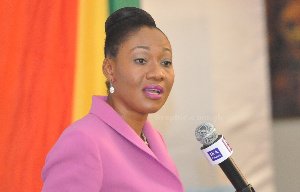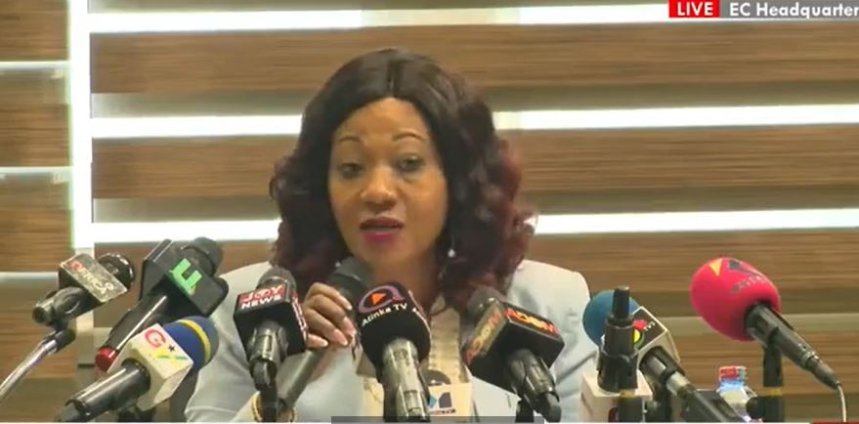The Institute for Democratic Governance (IDEG) and the Civic Forum Initiative (CFI) have asked political parties that disagree with the results of the just-ended elections, as announced by the Chair of the Electoral Commission (EC) Jean Mensa to go to court to resolve the issues.
IDEG and CFI said this is the best approach to resolving any election-related dispute.
The comments come after the presidential candidate of the National Democratic Congress (NDC) has said he will not accept the results of the elections because in his view, the results were manipulated in favour of Akufo-Addo by the Chair of the Electoral Commission (EC) Jean Mensa.
Addressing the nation on Thursday December 11, the presidential candidate of the NDC said “The facts and figures on the pink sheets available to us indicate that numerous steps have been taken to manipulate the elections in favour of the incumbent.
“This calls into question the credibility of one of our most important institutional pillars of democracy, the Electoral Commission. It is now obvious to many objective minds that the Commission and its chairperson have been used to manipulate results from the various constituencies and in that process seek to subvert the sovereign will of the Ghana people.â€
He added “Since the inception of the Fourth Republic, final election results have always been declared within a 72hour period to allow for thorough and diligence collation.
“Surprisingly, this Electoral Commission chairperson announced quite suspiciously for reasons known to her a hurried 24hour deadline which as we all know could not and would not be met.
“The Chairperson of the EC in less than 24 hours after her declaration has admitted that she made unacceptable errors which go to the heart of the entire electoral process and cast deep doubt on the credibility of the announced outcome.â€
But a joint statement issued by IDEG and CFI on Friday December 11 said “wish to commend Ghanaians for the high turnout and the orderly manner in which the electorate exercised their franchise on December 7. We further wish to commend the Electoral Commission and the political parties for their role in delivering relatively peaceful election. We however observed with growing concern that both the presidential and parliamentary elections results have stoked partisan controversy with both sides claiming victory.
“The disputed results have raised questions about the credibility of the outcome of the elections which can only be resolved in a court of law. Accordingly, we urge the aggrieved parties to resort to the court system to deal with the disputed aspects of the results instead of resorting to violence. The public has the right to know the truth about any discrepancies relating to the results because this election was the best opportunity for the electorate to exercise their sovereign right.
“The courts have the mandate and the tools to investigate, review and resolve any election related disputes based on the evidence provided in a transparent manner. Moreover, the supreme court is not only an avenue for peaceful resolution of election conflicts, but also clarifying electoral rules and regulations in order to improve electoral standards and advance critical reforms in the electoral system as demonstrated by the supreme court of Ghana in 2013.
“In the meantime, we appeal to the leaders and supporters of the two parties, to conduct themselves peacefully, mindful of the commitments their presidential candidates made by signing the Presidential Election Peace Pact on Thursday 4th December 2020 at the Movenpick Ambassador Hotel, Accra. In this pact, the leaders pledged: That we hereby commit ourselves and our supporters to peaceful elections in the December 2020 general elections; That we undertake to accept the results of the said elections; That we undertake to restrain our supporters from resorting to violence in the aftermath of the said elections; and That we are committed to the Judicial resolution of all election disputes.”
“Furthermore, we appeal to the National Chief Imam, the National Peace Council and the National House of Chiefs to engage and ensure that the Electoral Commission acts expeditiously on all complaints and encourage the parties to go to court as they have committed in the peace pact agreement.”
“Finally, we appeal to all Ghanaians including our vibrant youth to honor the memory of the founding father of the Fourth Republic, former President Jerry John Rawlings, by maintaining the peace, stability and security of the nation. Going forward, we entreat that collectively as a nation, we renounce violence as an option for resolving electoral disputes.â€
Source:Â 3 News




